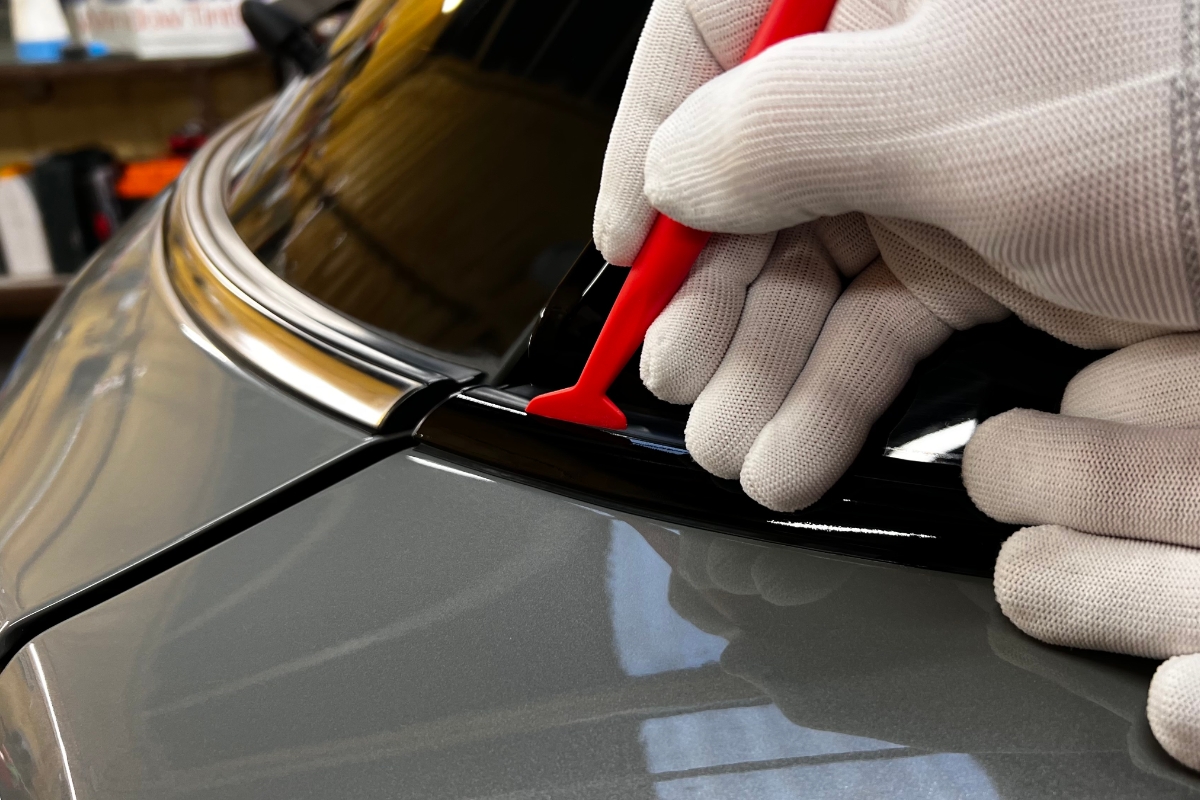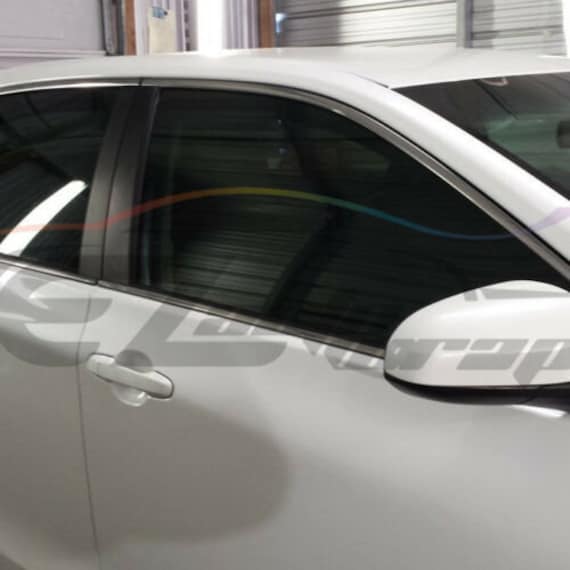Why Window Tinting Is Essential for Reducing Fading and Protecting Your Upholstery
Why Window Tinting Is Essential for Reducing Fading and Protecting Your Upholstery
Blog Article
Home Window Tinting Regulations: What You Need to Know Before Tinting Your Cars And Truck
Understanding home window tinting legislations is necessary for any type of car owner considering tinting their vehicle. Regulations differ dramatically from state to state, establishing details limitations for Visible Light Transmission (VLT) portions, specifically for front-side home windows and windshields. Failing to comply with these laws can cause fines, the necessity to get rid of the tint, and issues with insurance coverage. As you contemplate boosting your car's look and capability, it is important to grasp not only the legal implications yet also the sensible factors to consider that feature choosing the appropriate tint. What variables should you prioritize in your decision-making procedure?
Significance of Comprehending Tint Regulations
Comprehending home window tinting legislations is essential for car proprietors to make sure compliance with state regulations. These regulations dictate the permissible degrees of tint darkness and reflectivity, which can significantly differ from one territory to an additional. Failing to follow these guidelines can cause penalties, required removal of the tint, and prospective difficulties during automobile examinations.
Moreover, understanding these legislations assists lorry proprietors make educated decisions concerning their tinting alternatives. Various kinds of window movies give numerous advantages, such as UV defense, warm denial, and glow decrease. Nonetheless, without expertise of the legal limitations, automobile owners run the risk of choosing products that may eventually cause legal concerns.
Additionally, awareness of tinting regulations promotes a much safer driving environment. window tinting. Excessively dark tints can harm presence, increasing the danger of accidents, particularly during the night or in negative climate problems. Legislation enforcement companies also make use of these policies to make sure road safety and security, making conformity not just a lawful commitment but an individual obligation
State-Specific Color Regulations
Each state in the united state has developed its own certain guidelines concerning home window tinting, showing a diverse array of criteria and requirements. These guidelines can differ considerably, influencing exactly how automobile owners come close to installation and conformity. Some states enable darker colors on rear windows while imposing strict limitations on front-side home windows.
Additionally, guidelines frequently specify allowable tint products and colors. Particular states prohibit reflective tints completely, while others might enable them to a limited degree. Additionally, some territories mandate that vehicles with tinted home windows display a sticker suggesting conformity with state legislations, providing a clear identification for legislation enforcement.
Enforcement of these regulations additionally varies; some states are a lot more positive, performing arbitrary checks, while others count on issues or visible infractions to start enforcement. Car owners ought to know that failing to abide by state-specific tint guidelines can cause penalties, mandatory removal of illegal tints, or both.

Lawful Tint Percentages
Determining the lawful color percents is crucial for vehicle proprietors looking for to follow state regulations. Each state has specific laws governing just how much light needs to travel through the home windows of a lorry, which is shared as a percentage called Visible Light Transmission (VLT) This percentage differs significantly throughout states and can rely on the kind of home window-- front side, rear side, and windshield.
For example, see it here some states permit as little as 20% VLT on front side home windows, while others might permit up to 50%. Windscreen tinting is typically a lot more restricted, with many territories enabling just a narrow band of color at the top of the windscreen. On the other hand, back windows typically have extra tolerant policies, with some states permitting darker colors.
It is vital for vehicle proprietors to familiarize themselves with their neighborhood legislations to prevent potential lawful issues. This consists of understanding exactly how VLT is determined, as it can differ based upon the sort of home window film utilized. Staying informed regarding these regulations makes sure compliance and advertises safe driving conditions for both the automobile owner and others when driving.
Consequences of Non-Compliance
Failing to adhere to home window tinting laws can lead to considerable effects for vehicle owners. Policemans educated to recognize prohibited tint levels may provide fines, which can vary by jurisdiction however usually range from modest to substantial amounts.

Insurance provider might additionally penalize for non-compliance, as unlawful modifications can be considered as a breach of policy terms. If an event takes place., this can influence insurance coverage prices or lead to difficulties in insurance claims.
Eventually, the effects of non-compliance expand past instant monetary fines; they can impact a motorist's insurance coverage rates, explanation legal standing, and overall lorry value, emphasizing the importance of adhering to neighborhood home window tinting regulations.
Tips for Finding Tinting Options
Understanding the implications of non-compliance highlights the relevance of making educated options when selecting home window tinting alternatives. Familiarize yourself with your state's details legislations regarding color darkness and reflectivity. Each state has special laws that dictate the permissible limitations, so ensure you remain within these guidelines to prevent charges.
Secondly, think about the kind of color material. Alternatives consist of dyed, metalized, and ceramic colors, each offering varying levels of warmth being rejected, UV security, and durability. Ceramic colors give exceptional warmth resistance without interfering with electronic tools, making them a popular option.
Furthermore, analyze click reference your primary function for tinting. If you look for enhanced privacy, select darker colors; however, remember that this might influence visibility at evening. On the other hand, if glow decrease and UV protection are your main worries, lighter colors might be sufficient.
Lastly, talk to a specialist installer who is well-informed regarding neighborhood guidelines and can advise top quality materials fit to your requirements (window tinting). Taking these factors right into account will guarantee you make an educated choice, inevitably boosting both your vehicle's visual appeals and performance
Verdict
To conclude, knowledge with home window tinting regulations is important before applying tint to a car. Each state imposes certain guidelines regarding noticeable light transmission percentages, particularly for front-side windows and windscreens. Non-compliance can cause considerable fines, consisting of penalties and mandatory removal of non-conforming color. By comprehending legal requirements and picking proper color materials, automobile proprietors can accomplish aesthetic enhancement while continuing to be certified with relevant laws. Adherence to these guidelines ensures both safety and security and satisfaction.
Understanding window tinting regulations is important for any lorry proprietor taking into consideration tinting their auto.Understanding window tinting laws is important for car owners to make sure compliance with state laws. Some states permit darker tints on rear windows while enforcing stringent limits on front-side windows.
In comparison, back windows generally have more forgiving policies, with some states permitting darker tints. (window tinting)
In conclusion, familiarity with window tinting legislations is crucial prior to applying color to a vehicle.
Report this page